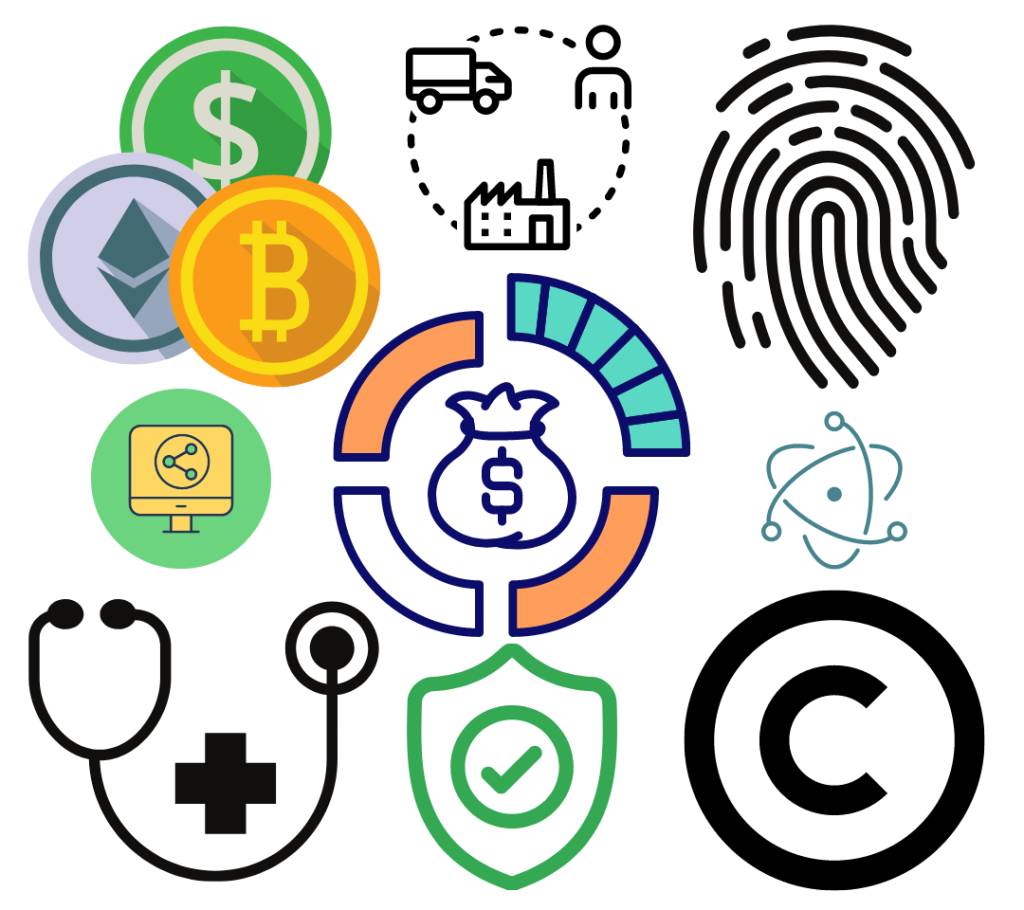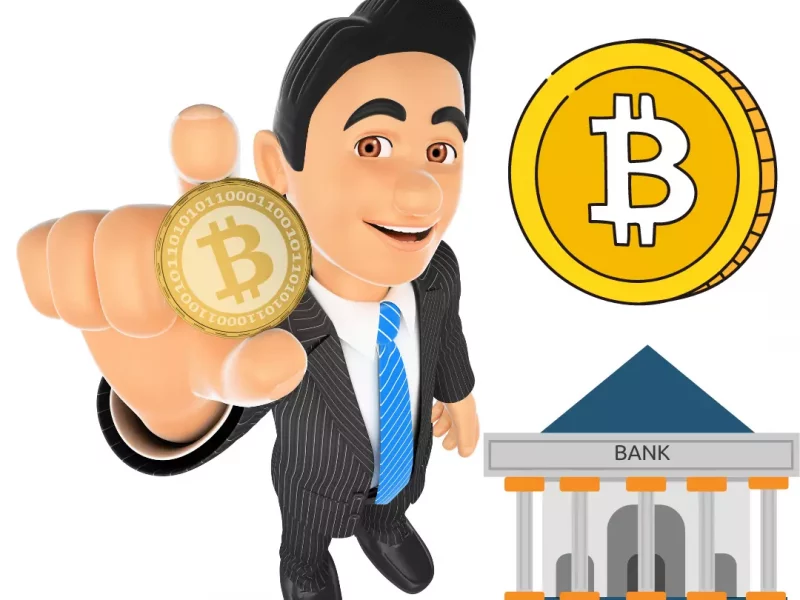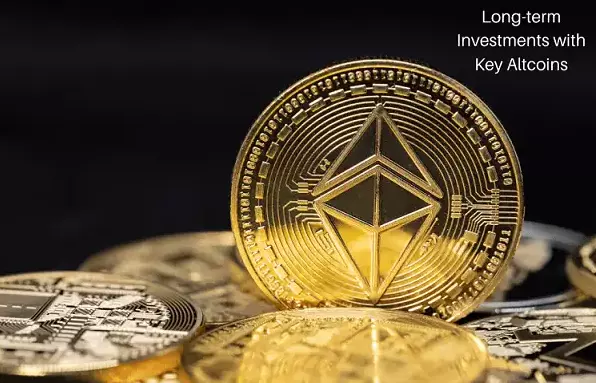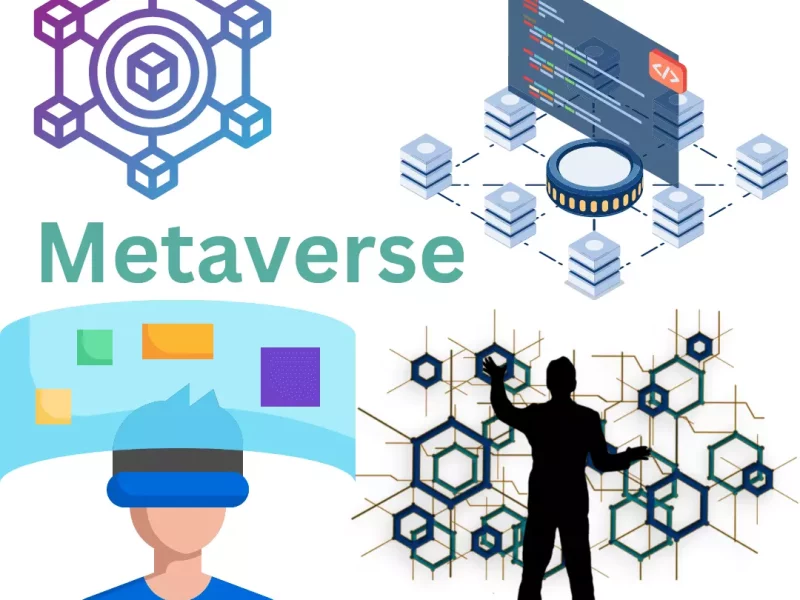The world has experienced a sea change every time an invention is made. When web3 came into existence, it broke the internet with its numerous use cases. Web3 is based on blockchain, which is decentralized, making the applications secure and transparent.
The invention of the blockchain has proved to be lucrative, which is why businesses today are opting for this technology. Blockchain technology is truly a game changer and is the next big thing in the coming future.
Eager to know more about blockchain and blockchain dapps, read the blog till the end.
What is Blockchain?
Blockchain is defined as a chain of blocks with digital information in each block. Each block has a 32-bit whole number connected to a 256-bit hash number. Every next block is connected with the previous block through the cryptographic hash function, which also ensures security in the blockchain. Blockchain is distributed, transparent, and immutable.
What are blockchain dApps?
Blockchain dApps are blockchain-based decentralized apps, built on the Ethereum network. These apps have advanced features and functionalities such as permissionless, no requirement of middlemen, transparent transactions, peer-to-peer transactions, and many more. All these compelling features make up the minds of business owners to get transformed into blockchain-decentralized apps.
Now, you would be looking for some of the amazing applications of blockchain that may transform every sector in this technological world.
Top Blockchain Technology Applications
1. Asset Management
Asset management is the most important application of web3 marketplace development since it entails the managing and trading of assets that a person may possess, including fixed income, stock, mutual funds, real estate, commodities, and many more. Normal asset management trade may be quite costly, particularly when it includes cross-border payments. However, Blockchain is a boon as it eliminates the need for middlemen like custodians, brokers, etc. Blockchain focuses on straightforward and transparent procedures in asset management without any room for fallacies.
2. Cross-Border Transactions
People are often involved in making cross-border transactions due to varied reasons. Isn’t it? If you also have experienced the same, then you must be knowing that it takes so many days for the amount to get credited. Thus, to eliminate this lengthy and complex procedure, blockchain technology is contributing by offering its middlemen-free services that make the whole process of transactions simplified. The money can be credited within 24 hours.
3. Healthcare
Blockchain plays a crucial role in the healthcare industry as well through its purposely built smart contracts. These contracts incorporate 2 different parties to settle on common terms and conditions in order to process the operations seamlessly. This smart contract-based blockchain technology sounds quite useful in maintaining personal health records by the primary healthcare practitioners with a key. Additionally, they support the HIPAA Privacy Rule, which guarantees privacy and restricted access to patient information.
4. Cryptocurrency
Cryptocurrency and blockchain are also a match made in the web3 world. The major reason behind the adoption of blockchain for cryptocurrencies is that it has no geographical limitations. As a result, cryptocurrency may be used for transactions anywhere. There might be a few percent chances that individuals may lose money through this procedure.
5. Certificates of Birth and Death
Many individuals across the globe, particularly in the world’s poorest nations, lack valid birth certificates as well as death certificates. UNICEF recorded one-third of children under the age of 5 do not have their birth certificates. Blockchain resolves this problem by providing a secure repository for birth and death certificates, accessible only to authorized people.
6. Online Identity Verification
To successfully carry out online financial transactions, identity verification is required. Who-so-ever utilizes the services of financial platforms like banks, needs to confirm the authenticity of their identities. Thus, blockchain comes with the option of centralizing the verification process so that individuals can centralize the online identity verification process.
7. Internet of Things
The “internet of things” is a system where various gadgets are linked together. In such a scenario, gadgets communicate with one another, and information is gathered to make informed decisions. One such example is- The Smart Home, where all home appliances like lights, thermostats, air conditioners, smoke alarms, etc., can be brought together on a single platform. How does Blockchain fit into this? Well, this widely dispersed system needs security, which Blockchain can provide. The security of an IoT system is only as strong as the weakest link, or device, in the chain. In this case, blockchain can make sure that the data collected by IoT devices are safe and accessible to only the right people.
8. Royalties and copyright
In the creative industries, such as music, cinema, etc., copyright and royalties are major problems. These are artistic forms of expression, and it doesn’t appear that they relate in any way to blockchain. Nevertheless, this technology is crucial for maintaining security and openness. There are numerous instances of plagiarism in music, movies, art, etc., where the original creators are not given the proper credit. Blockchain, which is transparent and has a detailed ledger of artist rights, can be used to correct this and provide a safe track record of artist royalties and agreements.
9. Supply chain management
When blockchain enters the supply chain network, the operations become simpler and seamless. There is no need to maintain paper records. Moreover, blockchain makes it easy to identify the items and minimizes the losses to control the production-line quality.
10. Food security
Blockchain has the ability to track your food from the farm or the place of origin to your plate/store to ensure food safety using the unchangeable characteristics of blockchain. If there arise any food-borne infections, then it is also possible to track the origin of the infection accurately.
11. Electronic voting
It is now possible to keep voter fraud at bay with blockchain technology. Voter fraud has always remained a serious issue. With the immutable nature of the blockchain, you can ensure that your vote actually counts. Blockchain makes voting transparent.
12. Property
The real-estate sector is quite confusing; however, the advent of the blockchain has made it simple. It enables easy transference of ownership. Without any need for paper, it provides a clear image of legal ownership. As titles are stored on the blockchain network, they can be altered and updated anytime.
13. Data sharing
The blockchain is used to share or sell unused data, and it was first introduced by IOTA, a distributed ledger system created by the IOTA Foundation. Organizations’ unused data bundles might be sent to areas that use them most through blockchain.
14. Tracking of weapons
Blockchain is also government-friendly. Official bodies and law enforcement may use blockchain to trace the ownership of weapons or guns. Blockchain would act as an open registry to keep track of privately sold weapons and armaments.
Conclusion
Blockchain, though the name has existed for a few years, is still in its early stages. The wide scope of blockchain technology has managed to impress various industries, including healthcare, real estate, finance, education, and many more.
As discussed above, it might have become clear how blockchain is revolutionizing the world with its various use cases. With blockchain, you can ensure speedy transactions, increased security, more transparency, and lower prices.




